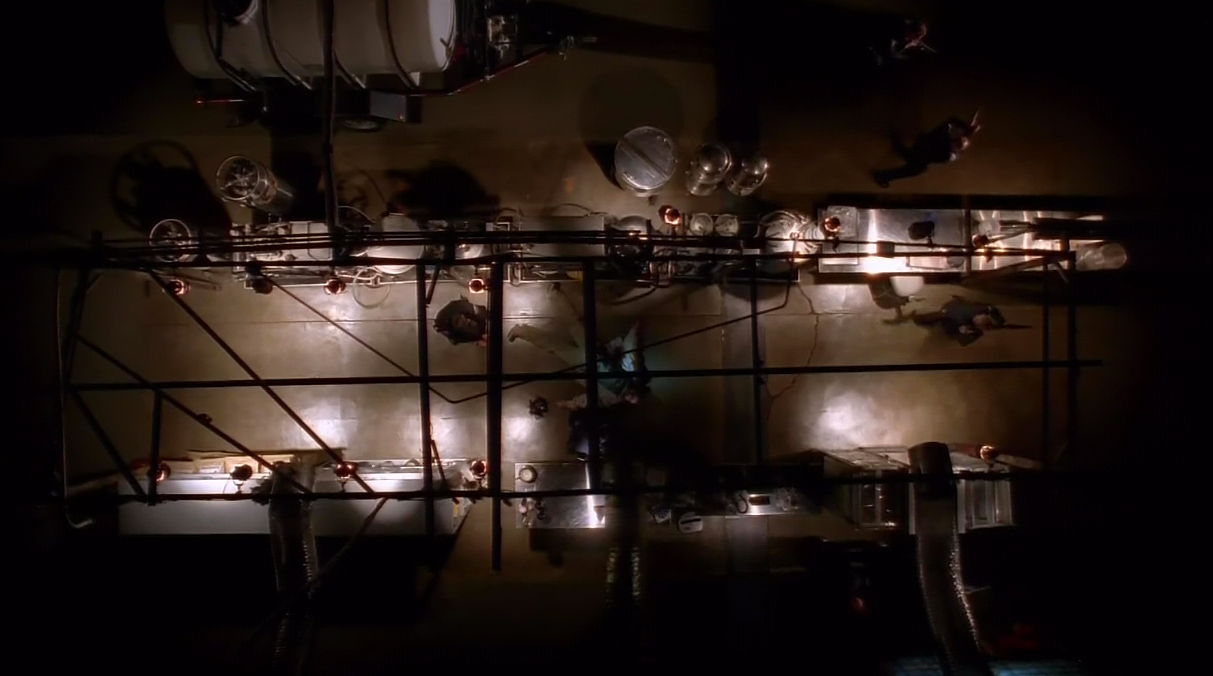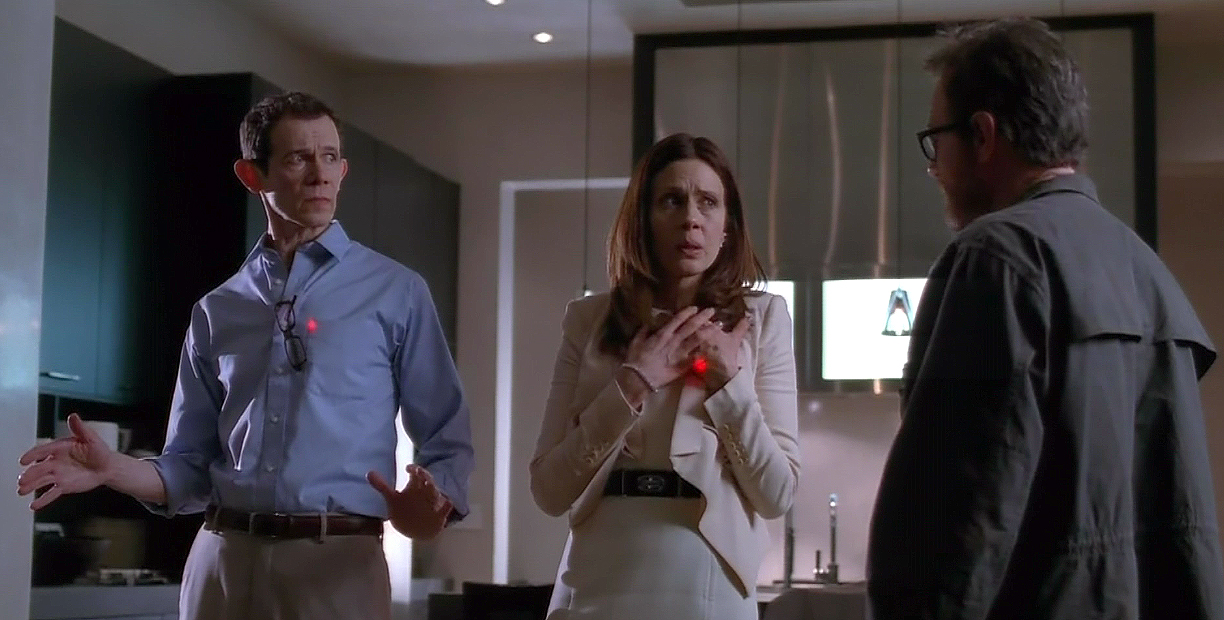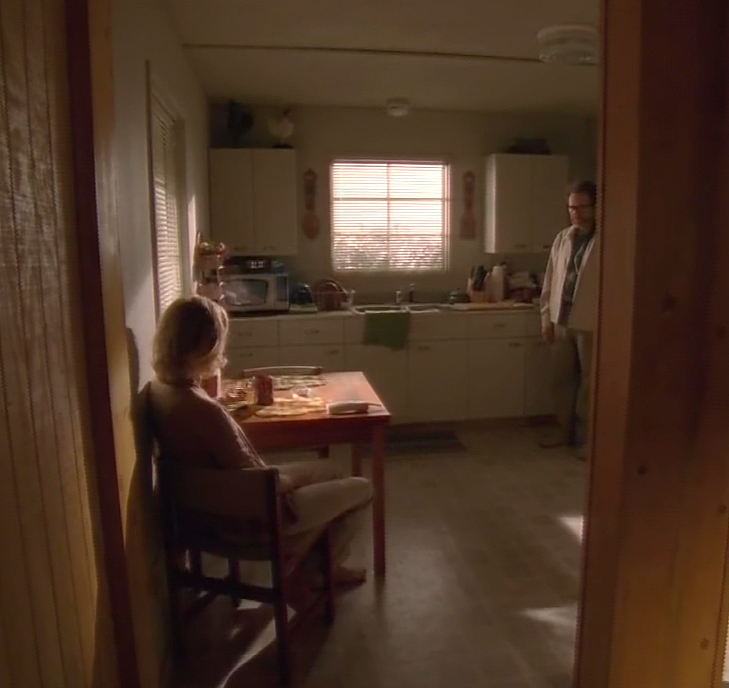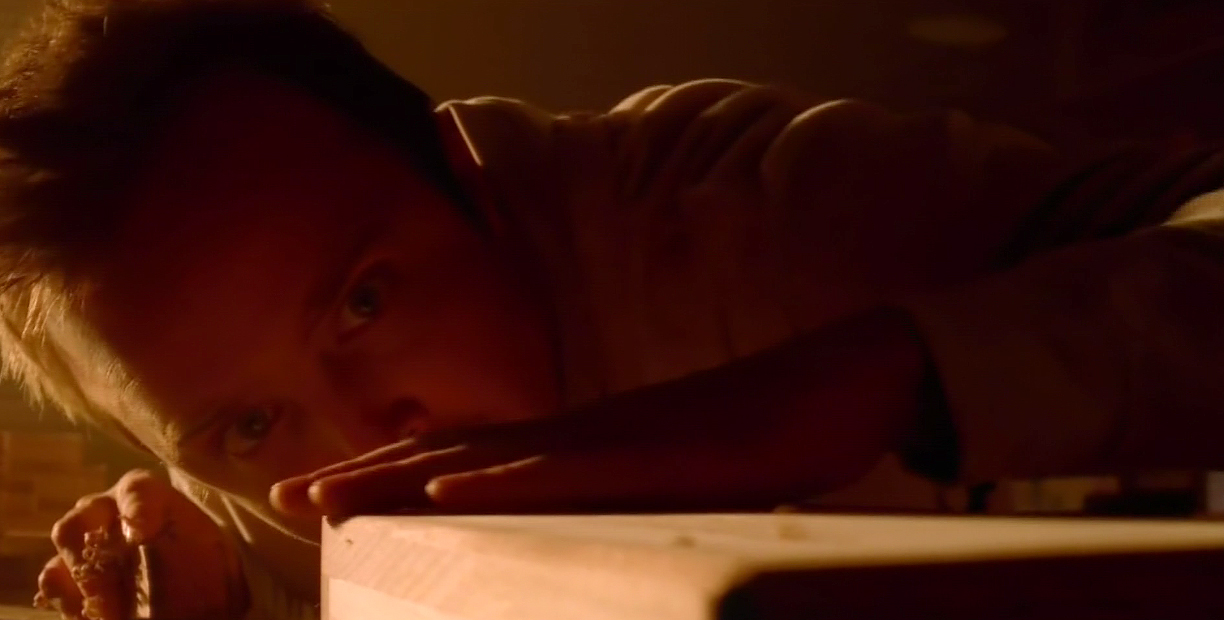Breaking Bad Breakdown: Deserving Denouement
What do we want from a finale? Should it be a spectacular episode that serves as the dramatic peak of the series? Should it like any other episode of the series, only more so? Should it be surprising, shocking, or transformative? Or should it offer closure?
For me, the main thing that I’m looking for in any finale is for a series to be true to itself, ending in the way it needs to conclude to deliver consistency, offering the type of ending that its beginning and middle demand. That changes based on the series, obviously, but it’s what makes Six Feet Under’s emphasis on mortality and The Wire’s portrayal of the endless cycle of urban crime and decay so effective, and why Battlestar Galactica’s final act turn toward mysticism (and that goofy robot epilogue) felt like such a betrayal to many fans. And it’s why finales like The Sopranos and Lost divide viewers, as the finales cater to one aspect of each series at the expense of other facets that some fans were much more invested in.
“Felina” delivered the ending that Breaking Bad needed by emphasizing closure over surprise. In many ways, it was predictable, with fans guessing many of the plot developments—read through the suggestions on Linda Holmes’s site for claiming cockamamie theories and you’ll see pretty much everything that happened on “Felina” listed there (alongside many more predictions that did not come to pass). For a series that often thrived on delivering “holy shit” moments of narrative spectacle, the finale was quite straightforward and direct.

The big shocks and surprises were to be found in episodes leading up to this one, especially the brilliant “Ozymandias”; since then, we’ve gotten the denouement to Walt’s story, his last attempt to make his journey mean something. It’s strange to think that an episode that concludes with a robot machine gun taking down half a dozen Nazis feels like a mellow epilogue, but emotionally it was this season’s least tense and intense episode. Instead, Walt returned home a beaten-down man, lacking the emotional intensity that drove him up the criminal ladder, but driven by a plan that he had just enough energy to complete. Given that the series premise was built on the necessity of a character arc building toward finality, and that it began with that character receiving a death sentence, we always knew that closure was likely to come in the form of Walt’s death, and this episode simply showed us how his final moments played out in satisfying fashion.
The opening emphasized how Walt’s journey has always depended on dumb luck to help him on the way. Whether this luck is sheer randomness or the assistance from some outside forces or higher powers is left unclear (at least beyond the higher power of Vince Gilligan)—although we do see Walt pray for help before the keys fall into the palm of his hands, it’s not as if the keys being in the car was some unusual miracle, and thematically it’s irrelevant whether fates or luck are driving him forward. This sign (or happenstance) frees him from his New Hampshire exile, as his return to the Southwest is cued by the cassette tape playing “El Paso,” where the episode title comes from. And with that moody but non-suspenseful opening, we are back in New Mexico.
It is unclear at first whether Walt’s visit to Gretchen and Elliot, set-up by posing as a reporter, takes place before or after the earlier flash forwards to Walt fetching the machine gun and ricin, but once he calmly sneaks into their house it becomes clear that he those weapons are not for these old friends. Instead he uses his preferred weapons of lies and manipulation to persuade them to deliver his nest egg to Flynn. Although I interpreted the end of the last episode that Walt was pulled back home to seek revenge, I bought that he was motivated to return after realizing another avenue to get his money to his family—while Walt has always been driven by pride and vengeance, his New Hampshire exile broke down most of his arrogance and replaced it with the desperate search for his crimes to have meant something in his final hours. And it does take some degree of humility to allow his family to think they are being supported by these old friends whom he now views as embodying the wrongs that lead him down this road to ruin; despite Walt’s insistence that only his money goes to his family, nobody will know this except Elliot and Gretchen themselves, assuming they agree to follow his request.
 Of course it is Walter White, so arrogance is always in play. He visits Elliot and Gretchen not to ask for their help or compassion, but to bully and terrorize them into being his accomplice. He enjoys showing off his power, demonstrating that while he failed as their partner in the business world, he thrived in another lucrative game for which they would have been ill-suited. When Elliot tries to stand his ground, Walt channels Mike Ehrmentraut (down to Bryan Cranston aping Jonathan Banks’s delivery) in coldly saying, “Elliot, if we’re going to go that way, you’ll need a bigger knife.” The bluff with the two assassins is just convincing enough to motivate them to carry out his plan (presumably), but not enough to fool viewers, knowing that Walt is far too out-of-the-game to hire actual killers instead of giving goofballs Badger and Skinny Pete one last curtain call.
Of course it is Walter White, so arrogance is always in play. He visits Elliot and Gretchen not to ask for their help or compassion, but to bully and terrorize them into being his accomplice. He enjoys showing off his power, demonstrating that while he failed as their partner in the business world, he thrived in another lucrative game for which they would have been ill-suited. When Elliot tries to stand his ground, Walt channels Mike Ehrmentraut (down to Bryan Cranston aping Jonathan Banks’s delivery) in coldly saying, “Elliot, if we’re going to go that way, you’ll need a bigger knife.” The bluff with the two assassins is just convincing enough to motivate them to carry out his plan (presumably), but not enough to fool viewers, knowing that Walt is far too out-of-the-game to hire actual killers instead of giving goofballs Badger and Skinny Pete one last curtain call.
He also takes this opportunity to inquire about something that must have been gnawing at him throughout his cross-country drive: the resurgence of quality blue meth. Knowing that Jesse is carrying on his business with Todd and Jack reawakens his pride and need for vengeance, so he gets the gun and ricin to destroy those who would dare to market his product without his approval. His ambush of Lydia and Todd demonstrates how her repeated attempts to be careful during these teatime meetings was overridden by her “schedule driven” nature, and Todd and Lydia are way out of their depths in trying to fool the master deceiver. The act-out image of her pouring Stevia into her tea is a bit too obvious in signaling the presence of the ricin, but I think that will play better without so much time between episodes to hypothesize who might be the recipient of the long anticipated poison.
While Walt’s mission to destroy the remnants of his business occupy the bulk of the episode’s plot, its emotional centerpiece is his meeting with Skyler. As always, Cranston and Anna Gunn make the scene crackle, conveying the both the bonds and fissures between the two characters that make their final goodbye neither reconciliation nor retribution. He visits her as one of his more selfless acts we have seen. He has no illusions that he’ll resolve things or get her back on his side; he simply wants to give her two things. First, the coordinates for Hank and Gomie’s grave, offered to provide closure to Marie and others, as well as assuaging Walt’s guilt over this one act of violence he caused but could not stop. Second, the closest he’ll ever come to an apology—after starting like a typical rationalization about “the things I’ve done” that Skyler rightly attacks him as another deceptive rationalization about family, Walt finally admits the truth. “I did it for me. I liked it. I was good at it. And I was alive.” This is not easy for Walt to say; it is his most brutal penance, having to admit his own selfishness to both his wife and himself. But in the end, Skyler returns the favor with the gift of a final moment with Holly, the child that Walt used as a bargaining chip the last time they spoke, as she remembers the part of him that still loved his children despite his abusive treatment of them. And Walt takes his own moment to observe Flynn from afar, looking at a child who rightly despises him, but he still loves. When I look back on this finale, this will be the scene I replay in my mind.

Of course the episode and series climax is the final confrontation. I fully believe that Walt intends to kill Jesse alongside the Nazis, as he fully believes that his protege has both betrayed him and stolen his formula—and based on Badger’s testimony, the student has surpassed the teacher. Many fans were speculating that Walt sought to “save Jesse,” but up until he sees his former partner in chained servitude, Jesse is an equal target of his wrath. Yet again, Cranston conveys Walt’s emotional shifts wordlessly, as he devises a plan to spare Jesse from his robo-gun once he sees that Jesse is yet again a victim of men with larger egos and more malice than him. While this final confrontation was a satisfying moment of Walt putting the monsters that he had unleashed back in the box, it was almost entirely suspense free. I never doubted that Walt would successfully kill the Nazis and spare Jesse, that he had poisoned Lydia, and that Jesse would not pull the trigger on Walt. These were the moral necessities of a well-crafted tale; Breaking Bad was done playing games with twists and surprises, but ready to allow Walt to sacrifice himself to put down the monsters he had unleashed. Yet the scene was constructed to create suspense with the potential that Walt might not get the remote control in time, creating a rare moment of failed tension in the series—I awaited and anticipated the emotional confrontation between Walt and Jesse without ever doubting the outcome or tension about what might happen.
The “how it happened” was quite satisfying, however. I saw the robo-gun as an homage to one of my favorite Breaking Bad scenes: in “Four Days Out” when Jesse thinks Walt is building a robot to engineer their rescue. This time he does, and it works in an appropriately macabre and darkly funny payoff: the excessive gunfire mirrors Walt’s frequent insistence to maximize his inventions (as with the overpowered magnets, insistence to capture every last drop of methylamine, etc.), and it keeps firing blanks as Kenny’s body receives an endless massage. Although Jesse is no cold-blooded killer, killing Todd was a line he was happy to cross in payback for months of torture and Todd’s own heartless killings of Drew Sharp and Andrea. However when given a chance to kill Walt, Jesse takes a pass; instead he forces Walt to admit that Jesse killing him is what he wants, and then denies him that pleasure. When Jesse sees that Walt was shot, Jesse thinks leaving him to die alone is what Walt deserves, especially given what happened with Jane.
What Walt deserves matters in Breaking Bad. I’m reminded of an important scene in the penultimate episode of The Wire, when one character wonders why another has plotted to kill him, asking what he’s done to deserve it (keeping names vague if you haven’t seen it). The would-be killer’s reply quotes the film Unforgiven: “Deserve’s got nothing to do with it.” But on Breaking Bad, deserve’s got everything to do with it, as it has always been a tale of morality and consequences. Jesse deserves his freedom, even though he is a broken-down shell of who he was—and while we want to know what’s next for him, I’m content with the openness that allows me to imagine him driving to Alaska and becoming a carpenter, perhaps after rescuing Brock and Lydia’s daughter from orphanhood.
Walt deserves to die, and we deserve to see it. The final musical cue in a series that excelled at their use was Badfinger’s “Baby Blue,” another classic like “Crystal Blue Persuasion” that the producers have probably been hanging onto for years. The opening line of the song is as essential as the color-specific romance: “Guess I got what I deserve.” In this final glorious sequence, Walt gets to die in the lab, as the music sings a love song to chemistry—which in this context, serves as an ode to his own talents in perfecting the Baby Blue. His tour around the lab has prompted some debate as to what Walt is doing: is he strategically leaving his bloody fingerprints to claim ownership, a sort-of turf-claiming mark of Heisenberg Was Here? I think not, but rather that Walt is admiring the precision and craft of the lab, both as a testament to his own pedagogical prowess that yielded Jesse’s talents, and as his natural habitat where he “felt alive,” as he told Skyler earlier. To the soundtrack romanticizing Walt’s own greatness, it’s a final moment of pride and arrogance that he seizes to overshadow all the carnage he has caused, an acceptance that more than his family, he did it for the chemistry.
“Felina” is far from Breaking Bad’s best episode, but it is the conclusion that the series and its viewers deserve. I think it will play even better both for viewers bingeing the season in quick succession and upon rewatch without the trappings of anticipation, hype, and suspense. Jesse escapes, Skyler and her family survive, and Walt and his one-time minions die. It all happens with less emotion and drama than what we’ve come to expect from the series, but given the strain of the journey up to this point, we’re as emotionally drained as the characters. So a low-key bloodbath is an appropriate way to exit this wonderful trip.
Random Bullets Fired By a Garage Door Opener:
- I was disappointed that the highly Walt-centric finale denied Jesse and Marie much time to shine. Marie’s phone call with Skyler was effective in showing that unlike her sister, Marie was starting to rebuild her life and family after tragedy. And Jesse’s woodworking fantasy was yet another reminder of how broken the poor guy has become. But I wanted more of both.
- The worst moment in the finale for me was the replay of Hank’s first suggestion about the profitable industry of cooking meth at Walt’s 50th birthday party from the series pilot. I understand that Hank’s presence was needed in this final episode, and calling back to the parallel birthday and origin story was a neat way to do it. But the use of the footage seemed forced and out-of-place within the series’s intrinsic norms—not to mention that the footage looked so different next the richer visual palette established from the second season onward. I wish they could have accomplished these goals by actually filming a new scene from the initial moments in the story, much like the opening sequence of “Ozymandias” fills in a narrative gap from the pilot.
- Directed by Vince Gilligan, the episode was compositionally exquisite, with lovely framings via windows and doorways conveying distance and divides. And the slow pull-in at Skyler’s apartment to reveal Walt was one of my favorite shots in a series full of visual beauty.
- Todd’s ringtone for the win.
- One last time, let me thank Taylor Cole Miller for late-night image gathering for these posts and troubleshooting technical issues at a moment’s notice. It’s been fun writing these reviews, but I’m ready for a calmer Monday morning next week!
Paratext of the Week:
So many to choose from! I could go for this great satire of Skyler-hating, or the compilation videos of Walt’s lies or Jesse’s abuse. But instead I’ll opt for the sentimental with this tribute to the people who made the series, and clearly had a great deal of fun telling a pitch black story.




Hello,
I loved your review and I was just trying to find that line where Walt plays Mike (“Elliot, if we’re going to go that way, you’ll need a bigger knife”) and I was wondering if you knew which episode it happened in?
Thank you,
B.